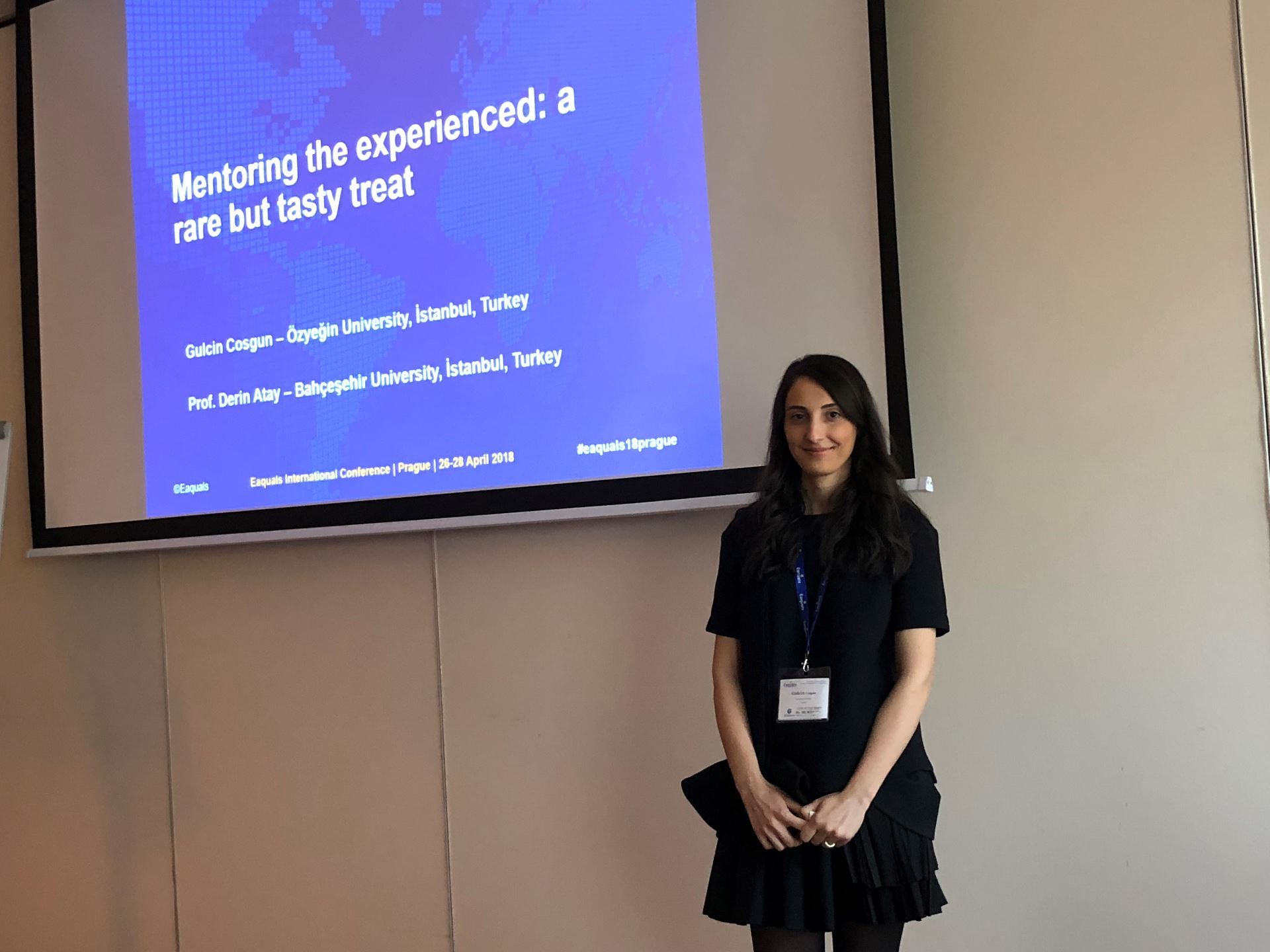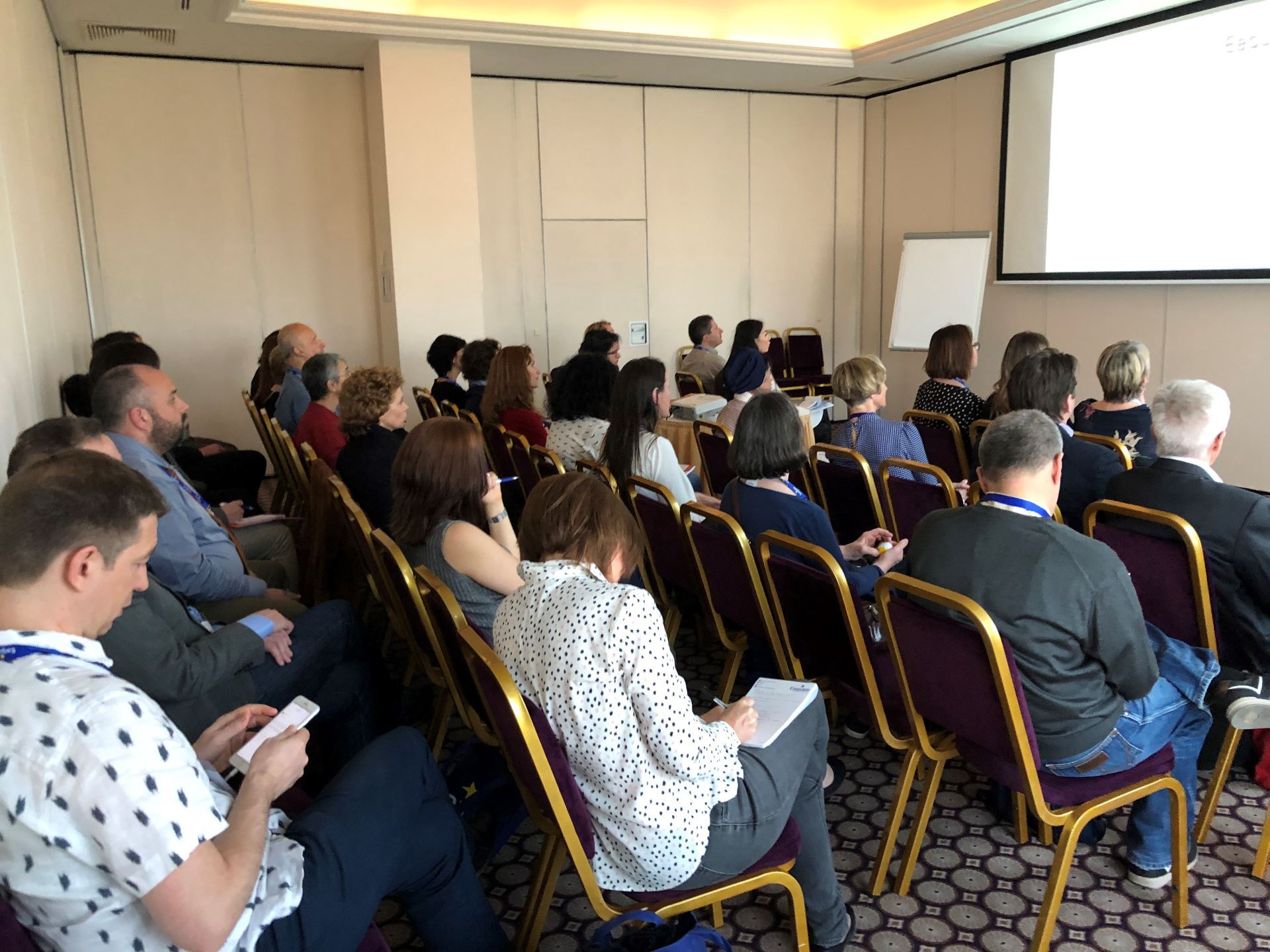Reflection on EAQUALS International Conference 2018 by Gulcin Cosgun
Conference Title: EAQUALS International Conference 2018
Presentation Title: Mentoring the experienced: a rare but tasty treat
Presenter: Gülçin Coşgun
1.Brief information about the conference:
The conference was held between 26 – 28 April 2018 in Prague. The 3-day event offers a rich and stimulating programme of professional development for centre owners and directors as well as academic staff.
2.Abstract of my presentation:
With the common belief that mentoring is crucial in the professional development journey of preservice teachers or beginning teachers who are in the earlier years of their career, mentoring programs for experienced teachers as a part of professional development opportunities are rare. The literature also demonstrates that little is known about the process and their impacts on experienced teachers because there are few studies conducted on this issue. Thus, in this presentation a mentoring model implemented with experienced teachers in Turkey will be introduced and the outcomes of a qualitative research that is conducted under the supervision of Professor Derin Atay to examine the perceived impacts of the program will be reported. Research findings may bring about valuable insights to the discussion of designing effective mentoring programs in order to develop the skills and competencies of the experienced teachers.


3. Highlights from the conference:
On the first day there was a full-day management training workshop for the participants. The sessions were conducted by Fiona Dunlop, the Academic Director at Wimbledon School of English, London. She has over 25 years worldwide experience in the field of ELT, including such areas as Teacher Training, Business and Soft Skills Training and Academic Management. It was a thought-provoking and inspiring training because we had time to reflect on how we manage ourselves.
In her sessions, Fiona highlighted that managing a team of teachers is a challenging but rewarding experience and she emphasized that in order to manage others well, we need to ensure that we are managing ourselves. We discussed how we can manage our own stress and management while multitasking on a daily basis. She emphasized the importance of paying particular attention to identifying and addressing our own CPD through self-reflection and self-observation to be able to manage success within our organisations. I really liked the idea of SWOTting ourselves (reflecting on our strengths, weaknesses, opportunities and threats). In the last part of the training, she provided some tools to allow individuals to perform to the best of their ability and the participants shared their ideas and experiences on how to manage under performance looking at real scenarios. I loved the quotation she used at the end of the day: “For an individual, moments are the thing. Moments are what we remember and cherish”.
On Friday 27 and Saturday 28 April, there was a rich mix of plenary talks and practical workshops delivered by external experts and representatives of Eaquals-member institutions. The plenaries were delivered by Sarah Mercer, who is a Professor of Foreign Language Teaching at the University of Graz, Austria, Yseult Freeney, Chair of the DCU Masters in Work and Organisational Behaviour/Psychology, and Silvana Richardson, who is the Head of Teacher Development at Bell.
I would like to share my reflections on one of the inspiring sessions in the conference. The workshop was given by John Hughes, who is a teacher, trainer and award-winning author. In his workshop, John emphasized that critical thinking should not be viewed as separate from everyday language learning and teaching and suggested some ways of making critical thinking an integral part of our teaching so that our lesson planning becomes more effective, classroom activities more motivating, and learners more independent. He suggested that we need to ask Wh- questions, give opportunities to students to give an opinion, give reasons and options, compare and contrast and add and exemplify. I also believe that in order for our students to be critical thinkers, we need to provide them with these questions. Even asking them to justify their answers or linking the information to the prior knowledge and making comparisons will give them to opportunity to look at the text critically. As teachers we do not have to do a lot of preparations. We can simply ask the right questions to incorporate critical thinking into our teaching. If you would like to learn more about these, you can visit his blog www.elteachertrainer.com.

Leave a Reply